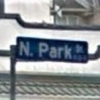Yeah, I figured those without a mortgage would be skewing the data.
I'm probably an outlier in the other direction too. Have never bought a new car (or likely never will), so I agree on the "depreciation is for rich people" point. And I bike most places, so I'm only filling up on gas once a month.
And good point on the opportunity costs with transit versus driving. But on the other hand, there are also added health benefits to biking, and a 20 min drive might only be a 25-30 min bike ride
(On trips that are bikeable - before I hear from the "you can't carry a cart load of goods on your bike from Costco" crowd lol)
I was being sarcastic. I drive, walk and bike. I have 3 cars in our 2 person household, I fill up each car once per month except when we go on roadtrips. What used to take 10-12 mins to crive from UVic to downtown now takes 20+ minutes due to road lane reductions or arterial routes. So just like socialism the objective to frustrate drivers in urban areas is the equal sharing of misery.... ![]()













